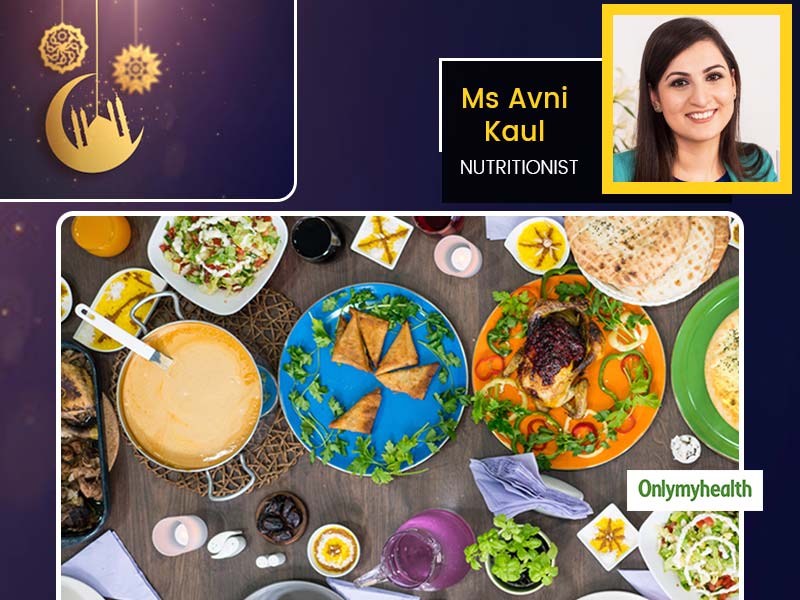
The holy month of fasting, Ramazan, or Ramadan is already going on in India. A complete the holy month of fasting for people who follow Islam is characterized by eating before the Morning Prayer, which is called Sehri, or Suhur. It is a pre-dawn meal consumed by Muslims while the next meal is consumed in the evening, called iftar when people break their fast for the day at sunset. Ramadan is an excellent time to break unhealthy eating habits that can put one at risk of diseases. While fasting can assist people to lose weight if they are attempting to, what one eats during Sehri and iftar plays a crucial role in overall health. One must abstain from eating unhealthy food to ensure better health throughout the month of Ramadan.
Ms Avni Kaul, Nutritionist, Wellness Coach & Certified Diabetes Educator, Founder of NutriActivania lists some foods below that help you meet nutrition needs during Ramadan.
Fruits

The ideal way to give your body energy and nutrients is to include fruits in your diet. Fruits are high in minerals, vitamins and fibre. They aid in weight loss, diabetes management, and also keep the risk of a majority of diseases away. Fruits also have natural sugar which helps in giving strength to the body during the ampere-hours of fasting. Fruits, nut and berries can be a part of both the pre-dawn and the post-dusk diet.
Also Read: Dr Bathwal Tells How To Store Foods To Minimize Waste During Lockdown
Vegetables

The post-dusk meal must be effortless to digest and light on your stomach. To make sure of this, you must include more vegetables in your diet for iftar. Vegetables give the body the nutrition it requires while making sure your stomach is light, and the food eaten is easily digested. Eating heavy meals can cause bloating and indigestion.
Also, Read Grandma's Kitchen Rules: Top Rules One Should Follow For Better Health, Explains Dr Swati Bathwal
Cereals and Bread

Cereals and bread are high in carbohydrates and therefore must be a part of your diet during Ramadan to give your body with the energy that you need during the day of fasting. Complex carbohydrates such as whole wheat, rice, oats, legumes, multi-grain loaves of bread etc. are great for the pre-dawn meal.
Dairy Products

Assure you do not miss out on the protein and other nutrients present in dairy products such as milk, curd, and paneer during the month of fasting. Dairy products are an integral part of a balanced diet and are needed by the body to provide for the nutrients it needs to function well. Products such as curd contain good bacteria, which are vital to keeping the digestive system healthy during fasting. Dairy products could be a part of the pre-dawn and post-dusk meals.
Fluids and Liquids

During fasting, people neither eat anything nor drink water. It is essential to hydrate your body when you are not fasting with the help of fluids, liquids, and water. Drinking fruit juices, milkshakes, or lime water can support to keep your body healthy during the times of fasting.
Read more articles on Healthy Diet
How we keep this article up to date:
We work with experts and keep a close eye on the latest in health and wellness. Whenever there is a new research or helpful information, we update our articles with accurate and useful advice.
Current Version